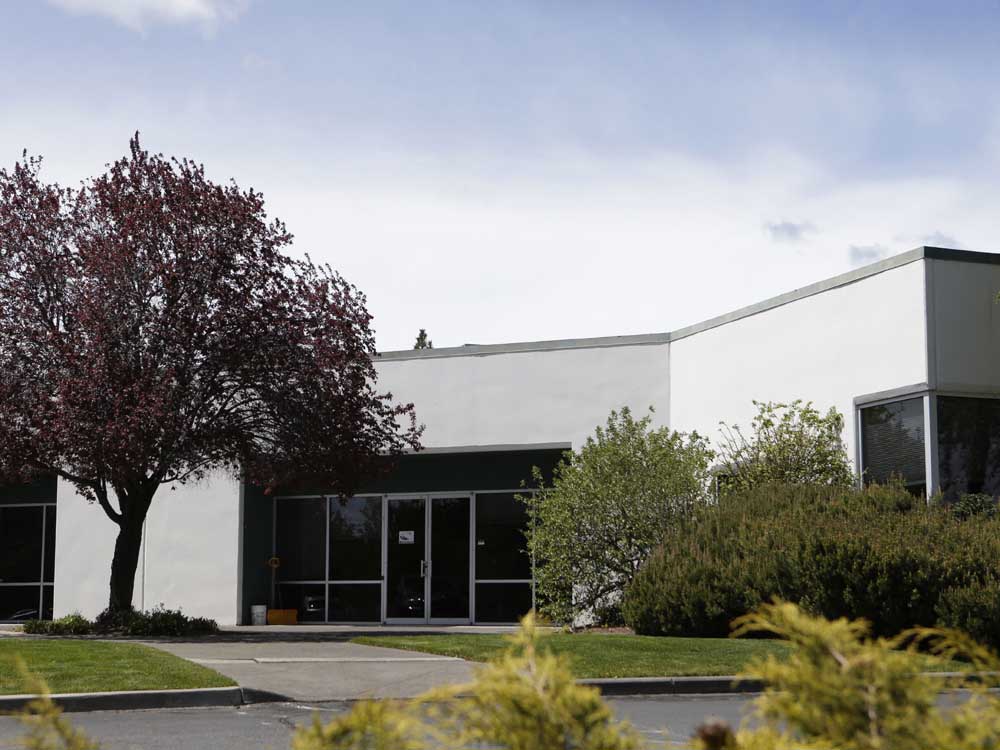Microsemi planning Bend plant closure
Published 3:18 pm Friday, May 26, 2017

- The Microsemi building on SW Columbia Street in Bend. (Bulletin file photo)
Microsemi Corp., which designs and makes silicon microchips in Bend, plans to close the production side of its facility at 405 SW Columbia Drive during the next two years, according to a notice the company sent to an electronics distributor.
The closing could mean the loss of dozens of jobs, as well as a semiconductor manufacturing center.
Microsemi has not talked publicly about its plans, and a spokeswoman did not respond to The Bulletin’s multiple requests for comment. Microsemi has notified its customers, however, about products that will be discontinued and impending changes to the engineering process as a result of the closing. The notices went to Minnesota electronics distributor Digi-Key, which will forward them to anyone who has bought Microsemi products, said Kayla Krosschall, marketing specialist at Digi-Key. Digi-Key customers are mostly electrical engineers, she said.
Microsemi stated in a March 1 product discontinuation notice to Digi-Key: “Bend wafer fab will be closing over the next 24 months.”
“Wafer fab” refers to wafer fabrication, the process of turning silicon wafers into microchips.
Bend’s toehold in the semiconductor industry goes back to Advanced Power Technology Inc., founded in the 1980s, which had its headquarters in Bend and was sold to Microsemi in 2006. The Power Products Group in Bend went on to produce Microsemi’s first batch of silicon carbide semiconductors, which are used in aerospace and defense applications, in 2008, according to The Bulletin’s archives.
Earlier this year Microsemi’s share price soared in part because investors believed American military spending would increase under President Donald Trump.
Microsemi has also been seen as an acquisition target.
Microsemi shares closed Friday at $48.16, according to the Nasdaq Stock Market. The shares have a 52-week high of $57.97.
Semiconductor industry veteran and Bend resident Bert Allen said he recently became aware of Microsemi’s plans for the Bend plant through industry contacts, and he hopes to intervene in order to save jobs and the high-tech manufacturing capacity of the Bend plant. Allen said he’s reached out to city officials and Economic Development for Central Oregon.
Roger Lee, CEO of EDCO, said his organization has contacted Microsemi on a weekly basis since hearing rumors of the closing, but the company has not responded. “They’ve continued to not return our calls either,” Lee said Wednesday.
As a result, Lee couldn’t confirm Microsemi’s plans.
Microsemi employed about 150 people in Bend in 2008, according to The Bulletin’s archives. The company doesn’t break down employment at each location but says it has 2,000 U.S. employees and 2,400 at international locations. Its headquarters is in Aliso Viejo, California.
Microsemi CEO Jim Peterson emphasized three points during an investor conference call last month: The outlook for growth is improving, profitability is on the rise and cash flow is strong.
Microsemi increasingly relies on overseas subcontractors, primarily in Asia, for wafer fabrication, according to an annual statement to shareholders. “By subcontracting … we focus resources on design and test applications where we believe we have greater competitive advantages,” the company said.
The subcontracting strategy helps Microsemi avoid the high cost of owning and operating wafer fabs, the company said. Microsemi owns its property on Columbia Street.
It’s unclear where Microsemi will send work on the microchips, which go into electronic power inverters, Allen said. A process-change notification that Microsemi sent to Digi-Key suggests Asia, he said, but military requirements could mean the work goes to a wafer fabrication plant elsewhere in the United States.
Closing the Bend wafer fab and transferring the technology to a new location will be a lengthy, high-stakes process, said Allen, a partner at Factory Integration Solutions, a California consulting firm. “This is a process that’s probably 100 steps long. If any of those steps don’t work, you don’t have a product,” he said.
Allen said he hopes that if Microsemi won’t retain the Bend plant, city, state and industry leaders can use it to lure another high-tech firm here. The Bend plant could be useful to another electronics’ firm’s research and development, he said.
— Reporter: 541-617-7860, kmclaughlin@bendbulletin.com






